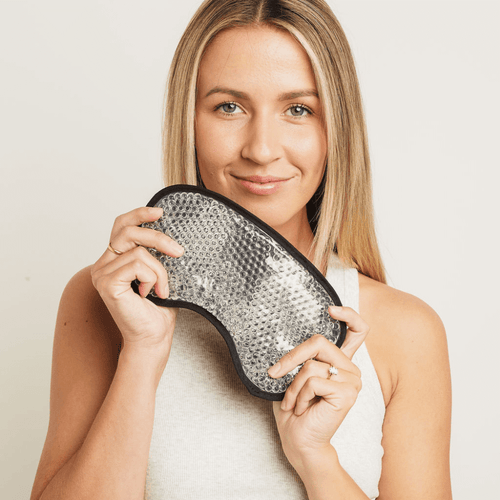Getting a good night's sleep is vital for our physical and mental health, but it's not always easy to achieve. In fact, according to a recent survey, one in three Australians say they don't get enough sleep. Lack of sleep can lead to a whole host of problems, including fatigue, irritability, poor concentration and memory, and even depression. So how can we make sure we're getting the shut-eye we need? The answer lies in good sleep hygiene.

What is Sleep Hygiene?
Sleep hygiene is a set of habits and practices that are necessary for achieving good sleep. It includes things like avoiding caffeine before bed, maintaining a regular sleep schedule, and creating a calm and relaxing environment in your bedroom. following good sleep hygiene habits can help you get the rest you need and improve your overall health and well-being.
How to Improve Your Sleep Hygiene
There are a few simple things you can do to improve your sleep hygiene and get better quality sleep:
1) Avoid caffeine in the evening: Caffeine is a stimulant that can keep you awake and make it difficult to fall asleep. If you're trying to improve your sleep hygiene, it's best to avoid caffeine after lunchtime.
2) Establish a regular sleep schedule: Going to bed and waking up at the same time each day will help regulate your body's natural sleep cycle and make it easier to fall asleep at night.
3) Create a calming bedroom environment: Make sure your bedroom is dark, quiet, and cool - all of which will promote relaxation and better sleep.
4) Avoid screen time before bed: The blue light emitted by screens can interfere with your body's natural production of melatonin - the hormone that makes you feel sleepy. So, if you're looking to improve your sleep hygiene, it's best to avoid TV, phones, laptops, etc., in the hour before bedtime.
5) Exercise during the day: Getting regular exercise has been shown to improve sleep quality, so aim for 30 minutes of moderate exercise most days of the week.
6) Practice relaxation techniques before bed: Taking some time to relax before bed can help ease you into sleep mode. Try reading or listening to calm music before turning out the lights.
7) Keep a sleep diary: Tracking your sleeping patterns can help you identify any behaviors or habits that may be interfering with your ability to get a good night's rest. A sleep diary can also be helpful for discussing your sleep with a doctor or other healthcare professional.
8} Limit naps during the day: Napping can interfere with nighttime sleep, so try to limit them to no more than 20 minutes during the day.
9) Avoid eating late at night: Eating too close to bedtime can lead to indigestion and disrupt your sleep. If you're hungry before bedtime, opt for a light snack like yogurt or fruit instead of a heavy meal.
10) Avoid drinking alcohol before bed: While alcohol may make you feel drowsy at first, it actually leads to poorer quality sleep later in the night. So if you're trying to improve your sleep hygiene, it's best to avoid alcohol in the evening.
11) Don't work or worry in bed: Bed should be associated with sleeping (and maybe sex!) only - not working or worrying about things that happened during the day. If you can't fall asleep because you're worried about something, try getting out of bed and writing down what's on your mind so you can forget about it until morning.
Sleep is crucial for our physical and mental health, but unfortunately, many of us don't get enough shut-eye on a nightly basis. Luckily, there are some things we can do to promote better sleep - known as "sleep hygiene." By following good sleep hygiene habits like avoiding caffeine in the evening, maintaining a regular sleep schedule, and creating a calm bedroom environment, we can improve our chances of getting a good night's rest. Sweet dreams!




















